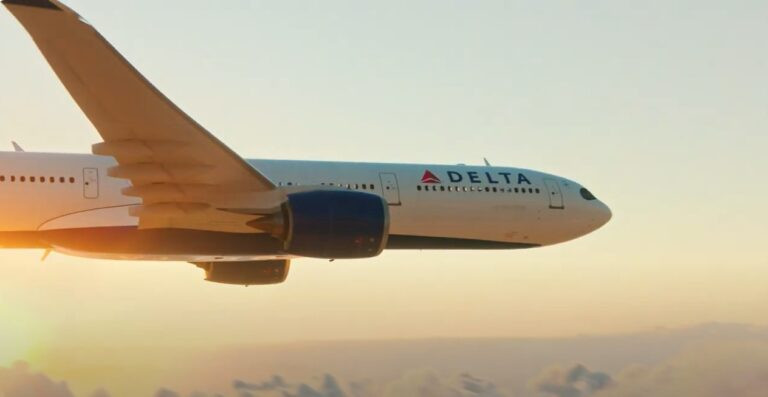Delta Airlines is playing the long game in Latin America’s air cargo space, with one hand reaching out to their Southern neighbour through its joint venture with Aeroméxico, and the other stretching deep into the southern cone via its growing partnership with LATAM. But in 2025, the two strategies couldn’t be on more different trajectories. And for shippers and forwarders watching the region, the contrast is hard to ignore.
Aeromexico
The Delta–Aeroméxico joint venture, first greenlit back in 2016, was a cornerstone for US air trade with Mexico. It gave both carriers the right to coordinate schedules, pricing, and route planning with full antitrust immunity. That meant consistent capacity across the border, tighter integration at key hubs, and a unified strategy for belly and freighter lift, especially through Mexico City International Airport (MEX).
Together, the alliance moved roughly 73 percent of air cargo on US–Mexico lanes, according to local reporting. For time-sensitive exports like semiconductors, auto parts, electronics, and pharmaceuticals, not to mention perishable imports like berries and avocados.
But now that’s all under threat. In mid-2023, the Mexican government slashed aircraft movements at MEX and ordered all-cargo carriers, including foreign operators, to relocate to Felipe Ángeles International Airport (AIFA), about 30 miles away. The goal was to ease congestion. The outcome? A logistical nightmare.
AIFA lacked the infrastructure, ground handlers, and cold-chain capacity that cargo operators rely on. Shippers complained of delays and reroutes. US officials, integrators, and industry associations soon raised the alarm.
Then in July 2025, US Transportation Secretary Sean Duffy stepped in, proposing to revoke antitrust immunity for the Delta–Aeroméxico alliance. The show-cause order was part of a broader enforcement package targeting what DOT says are violations of the US-Mexico Air Transport Agreement. Mexican carriers were ordered to submit detailed schedules and obtain advance approval for charters.
For the Delta–Aeroméxico venture, it’s a serious blow. Without immunity, the two airlines can’t coordinate pricing or route planning, and joint cargo operations become harder to manage.
LATAM
Their joint venture with LATAM, approved in 2022, was several years in the making and is starting to look like a textbook case of how to scale regional cargo. Since launch, Delta and LATAM have grown flight capacity by more than 68 percent, added new long-haul routes (São Paulo–L.A., Bogotá–Orlando, and more), and started integrating LATAM’s widebody freighters into Delta’s US cargo hubs in Miami and Atlanta.
According to Delta, the JV now covers over 7,000 city-pair markets, with added service to Argentina approved this past April. And from a cargo perspective, the integration goes beyond belly capacity. LATAM operates a fleet of 767 and 777 freighters that now dovetail with Delta’s network—giving US shippers improved access to markets across Brazil, Chile, Peru, and Colombia.
It’s not just about more routes. It’s also about more control. LATAM has invested in cold-chain and pharma handling infrastructure in key gateways, and recently expanded its integrated pharma network alongside Delta, an important win for life sciences cargo moving from South America into the US.
So while Delta’s Mexican partnership sits on shaky regulatory ground, its South American counterpart is humming.
Divergence and regulatory setbacks
Some logistics experts believe Delta may start rebalancing its Latin American cargo portfolio as a result, pushing more high-value traffic into the South American network while letting Mexican operations absorb the turbulence. Whether that proves long-term or temporary depends on how the regulatory standoff plays out in the months ahead.
While the enforcement came under the current administration, the seeds of this scrutiny were planted earlier. The Biden-era Department of Transportation had already taken a tougher stance on joint ventures and airline consolidation.
Potential regulatory setbacks could undercut years of shared investment, planning, and harmonised cargo operations.
Meanwhile, President Claudia Sheinbaum has dismissed US accusations claiming “There is no reason for the United States to impose sanctions”, defending the MEX slot cuts as necessary for long-term decentralisation. She’s also downplayed the threat of sanctions, stating no formal notice has been received.
What’s next?
However, the US appears serious. The dispute comes just ahead of the 2026 USMCA review, and some see it as Washington setting the tone early on fair aviation access.
For now, Delta and Aeroméxico have until late October to respond to the show-cause order. Until then, the future of one of the most important air freight corridors in the Americas hangs in the balance.





